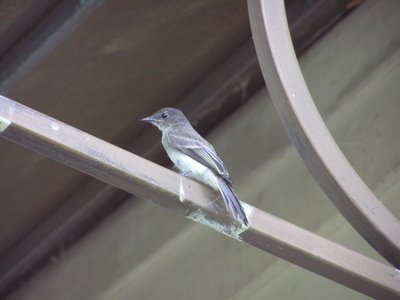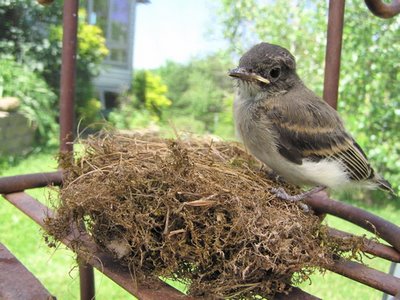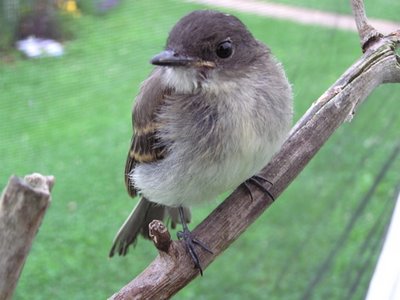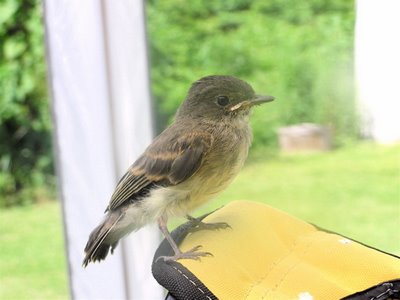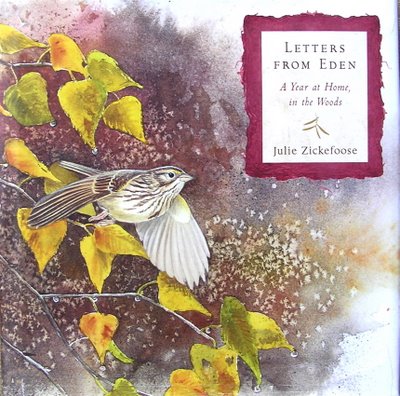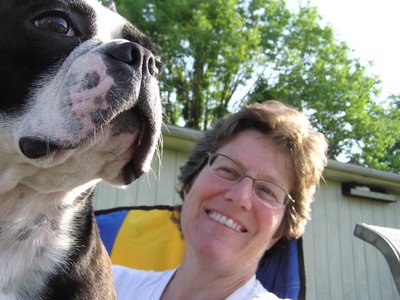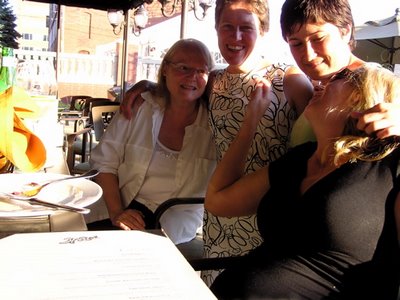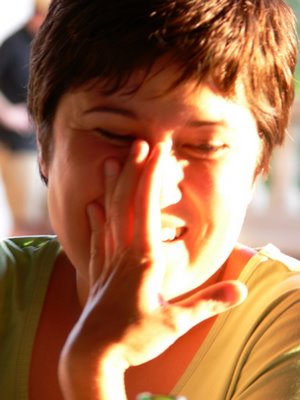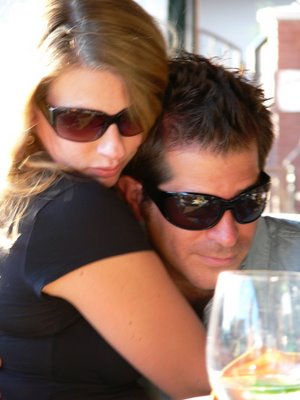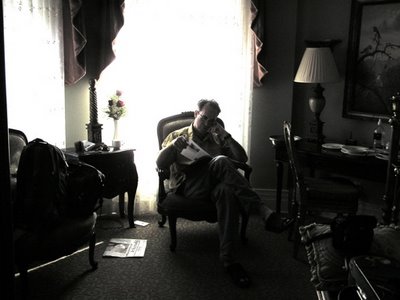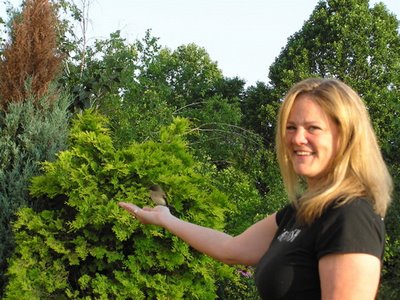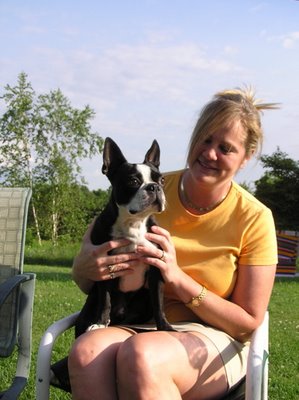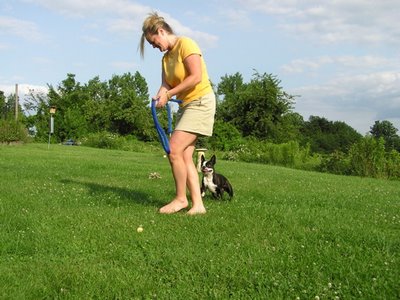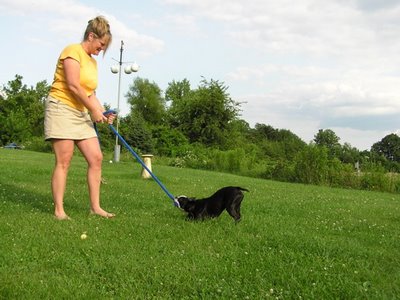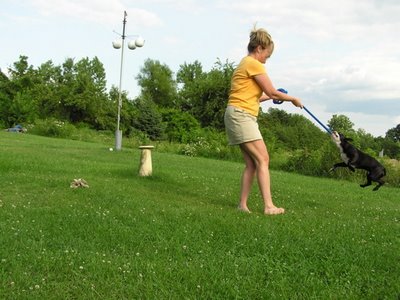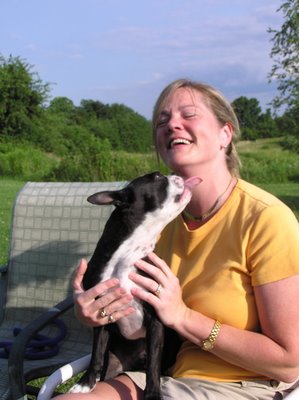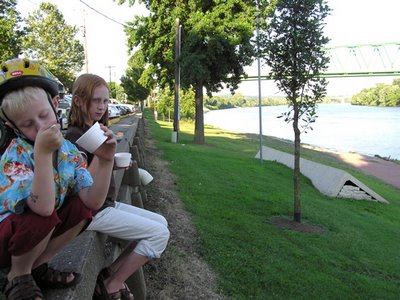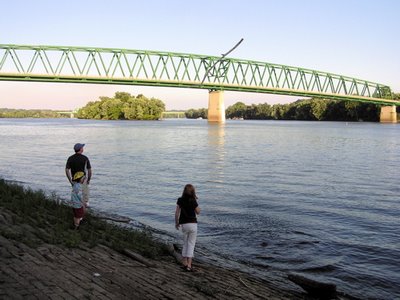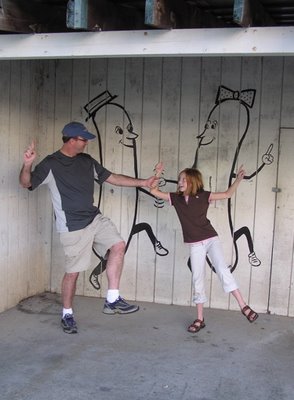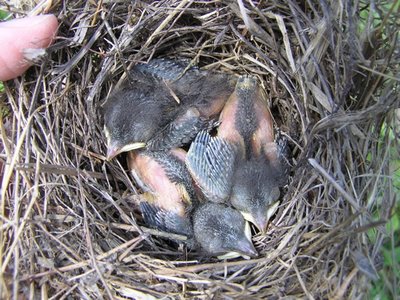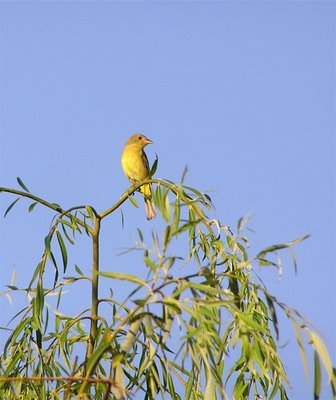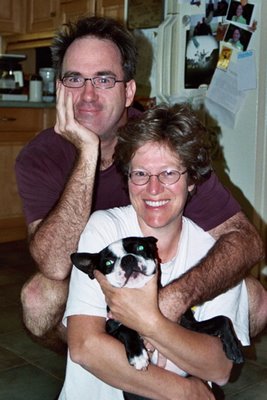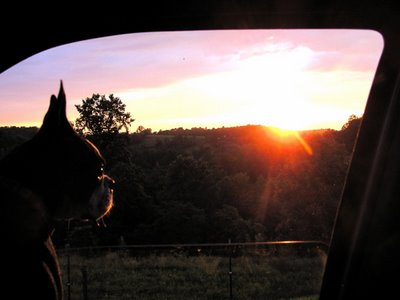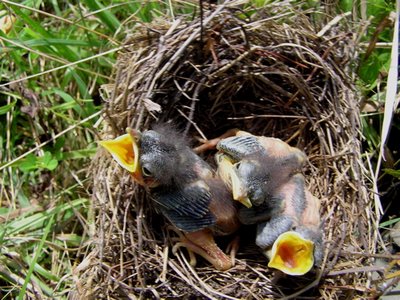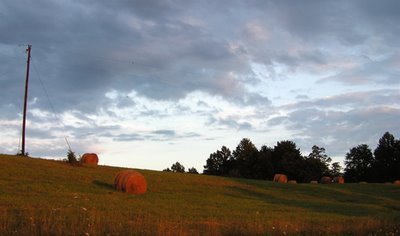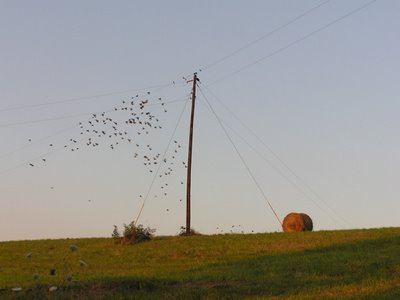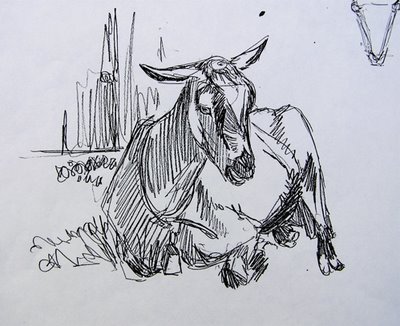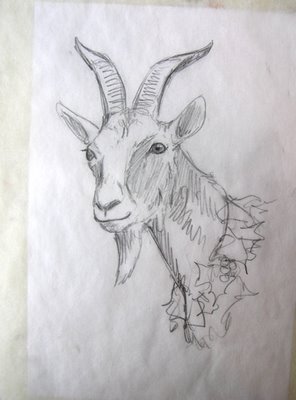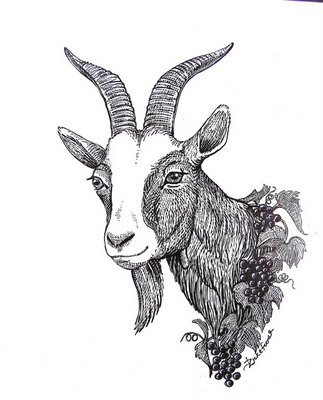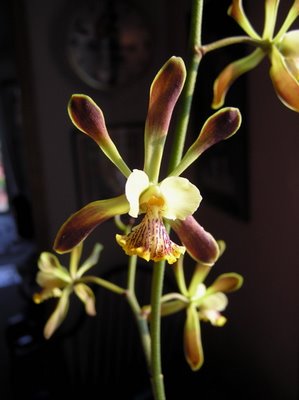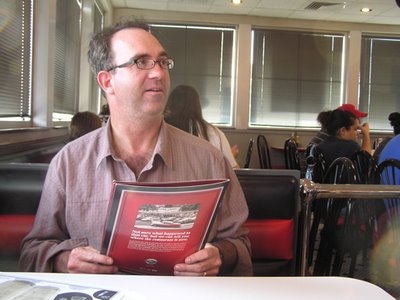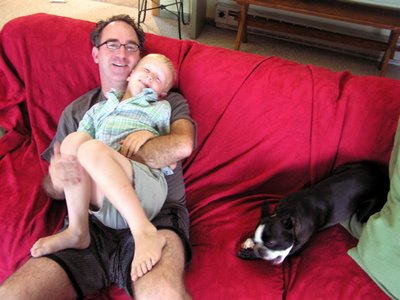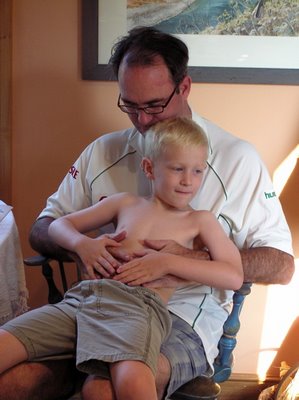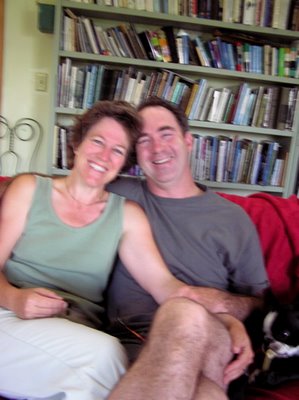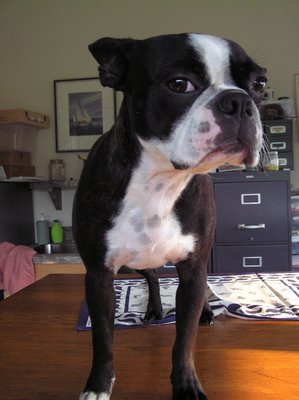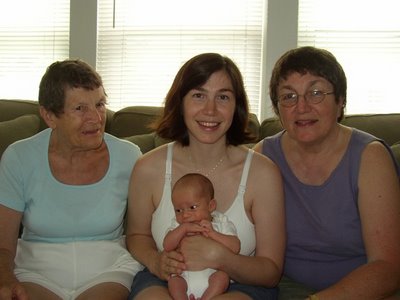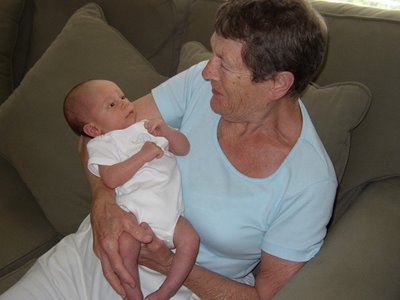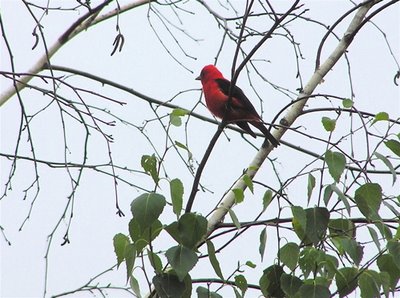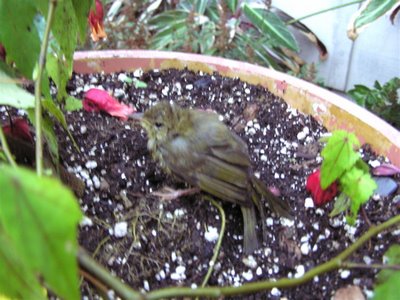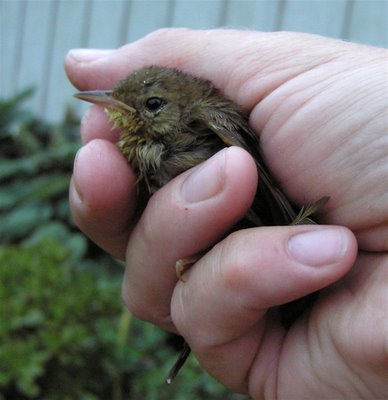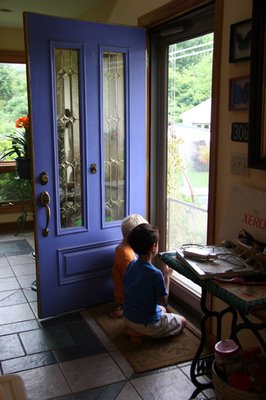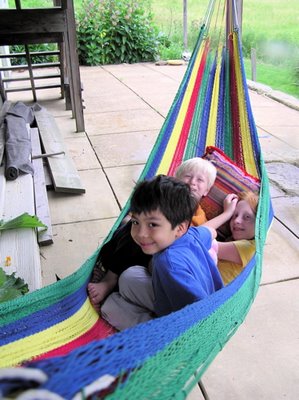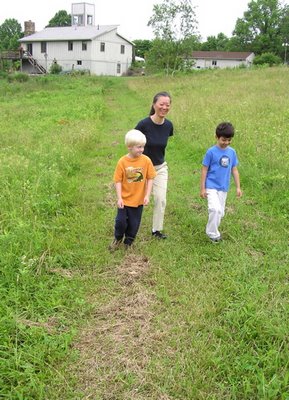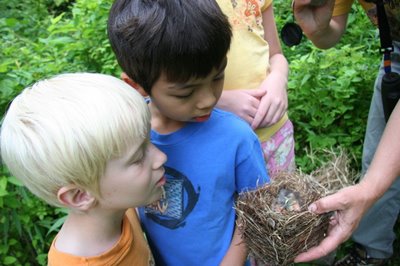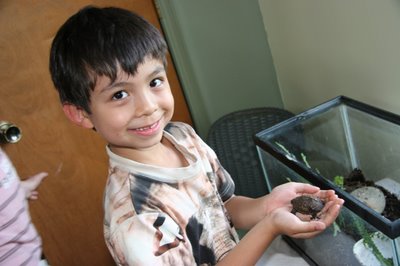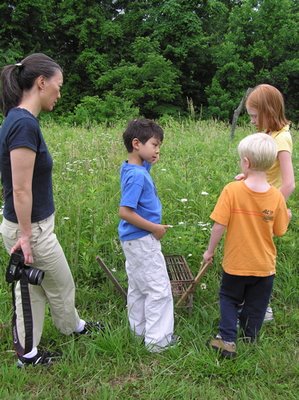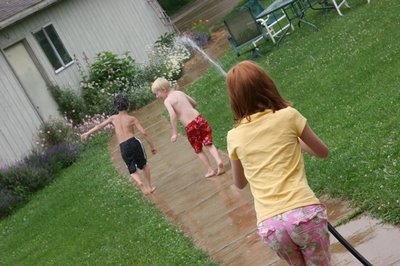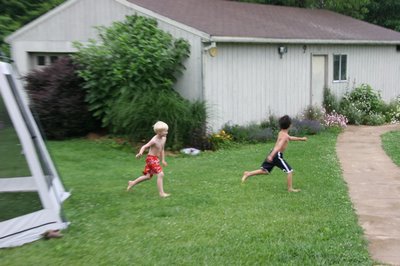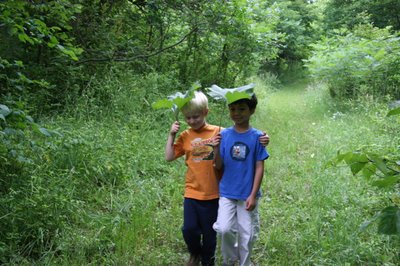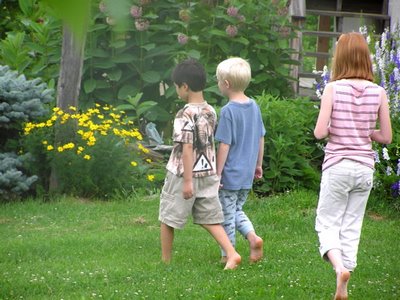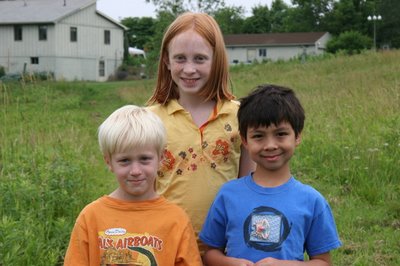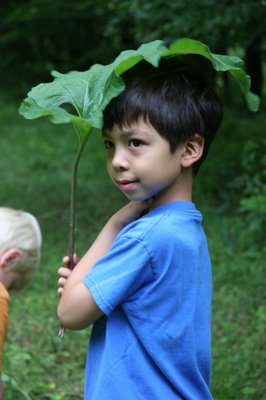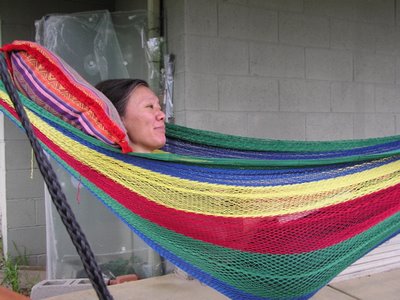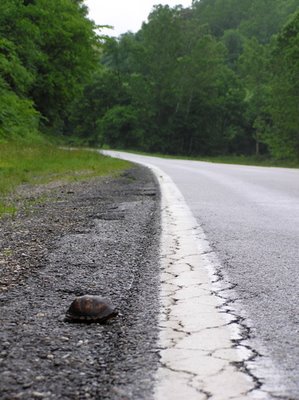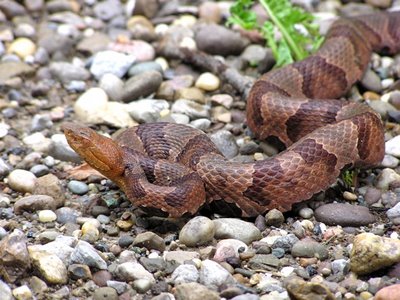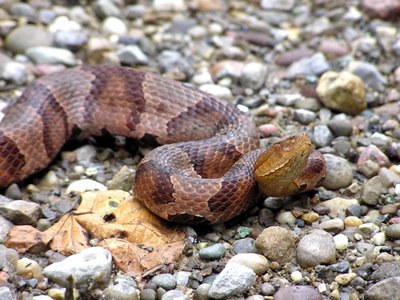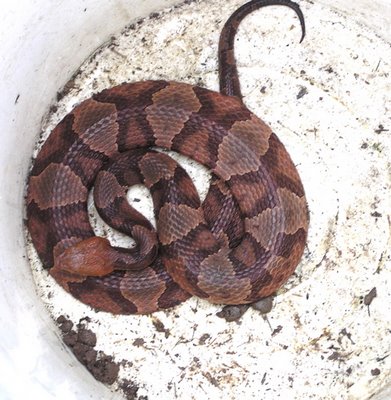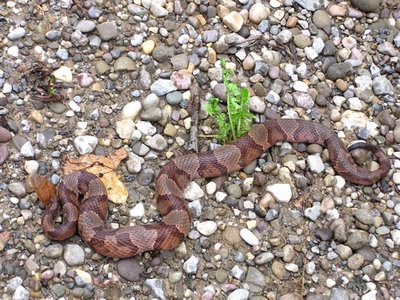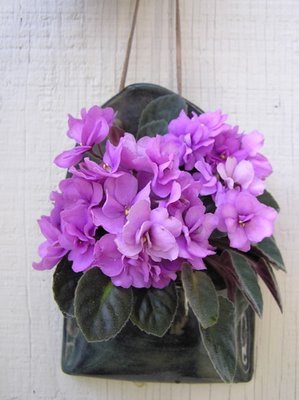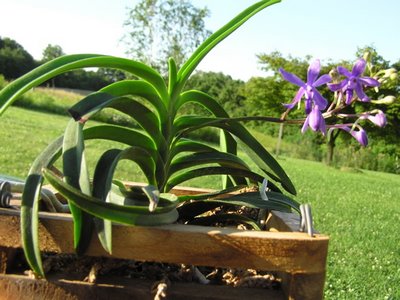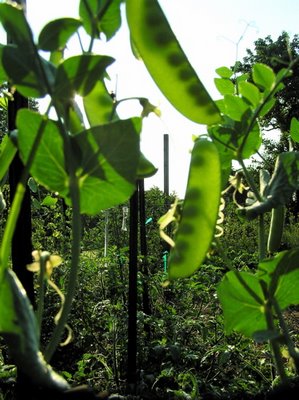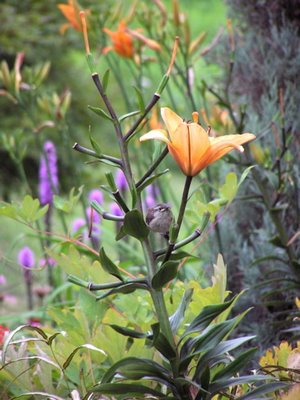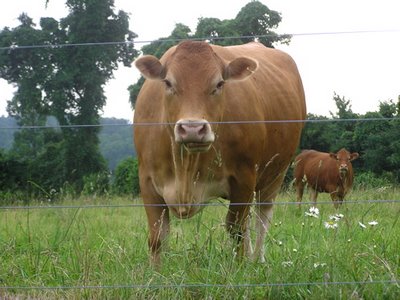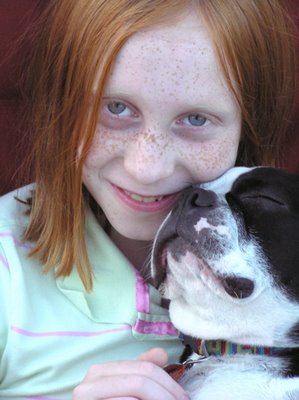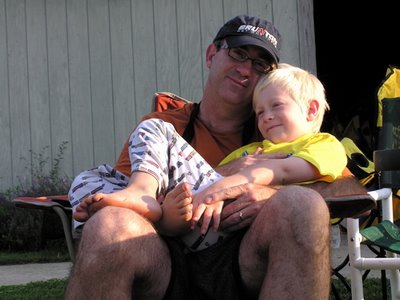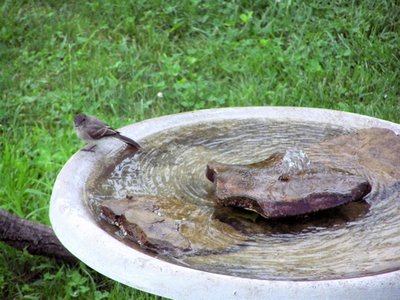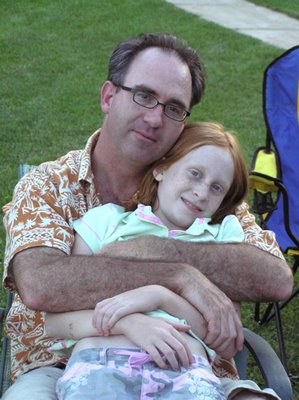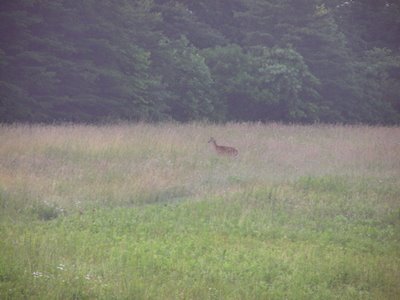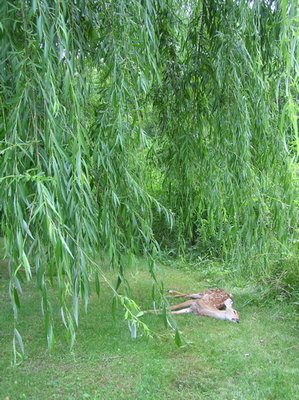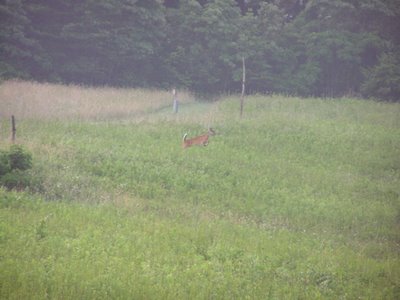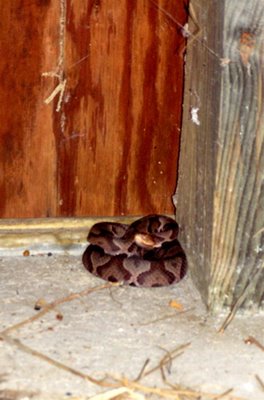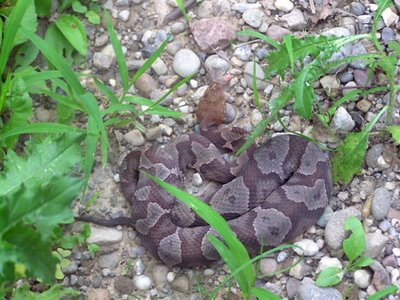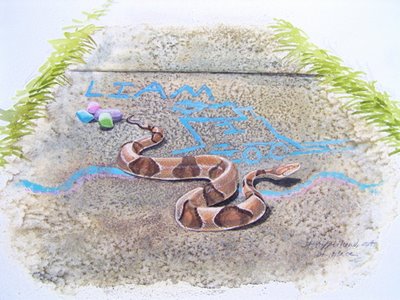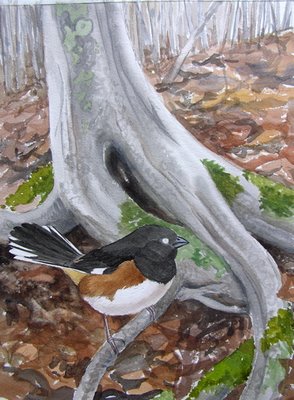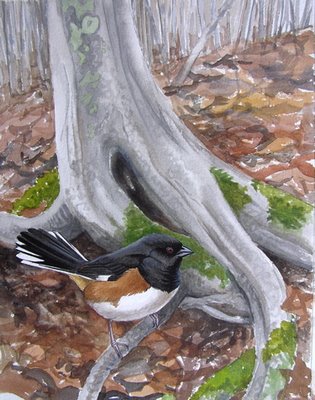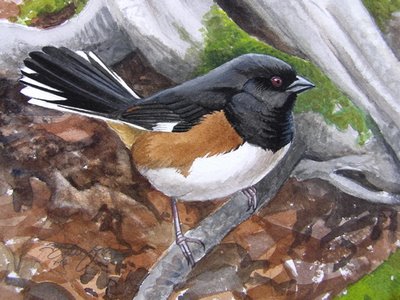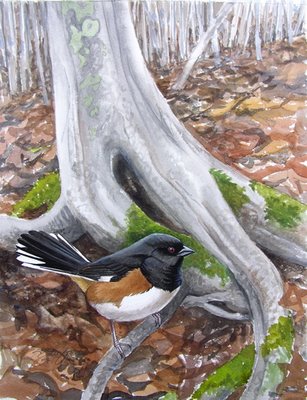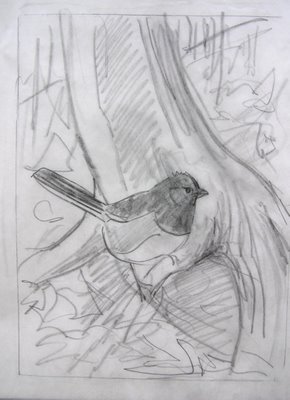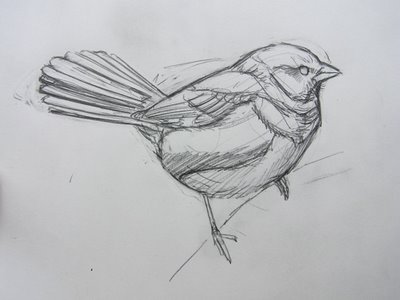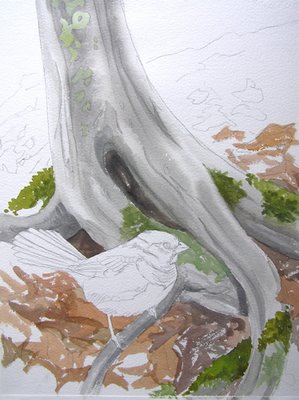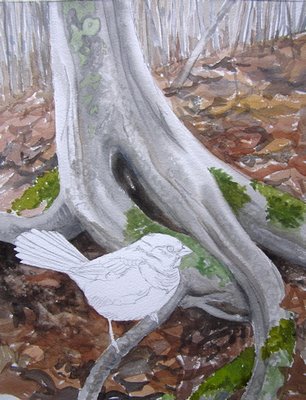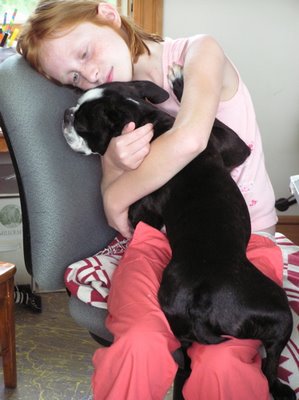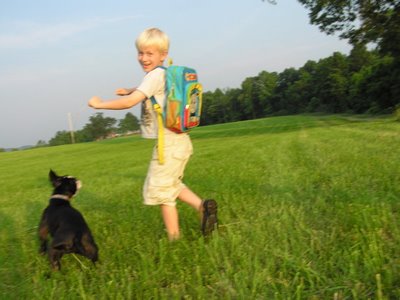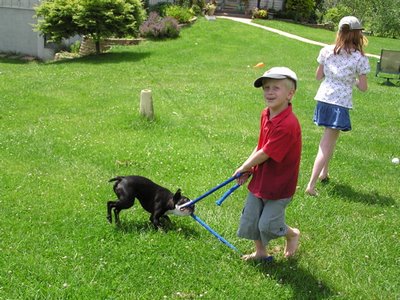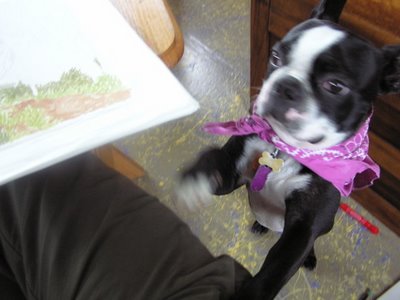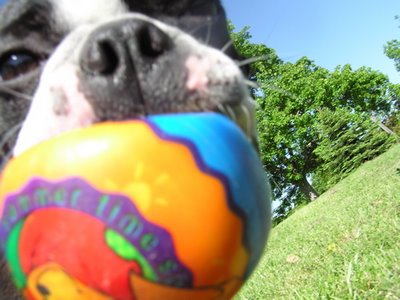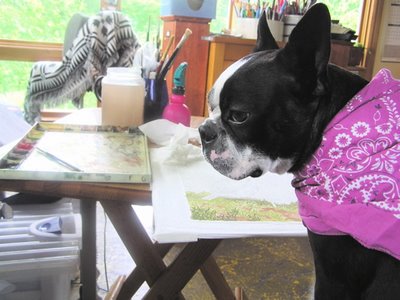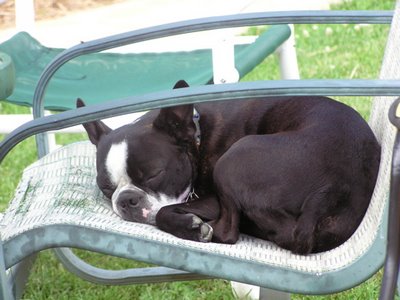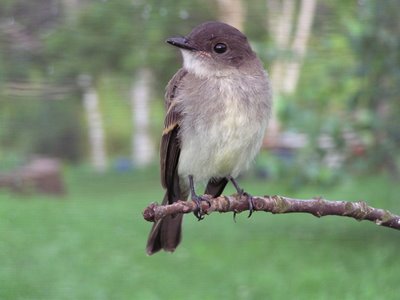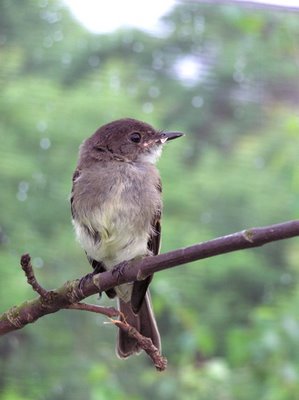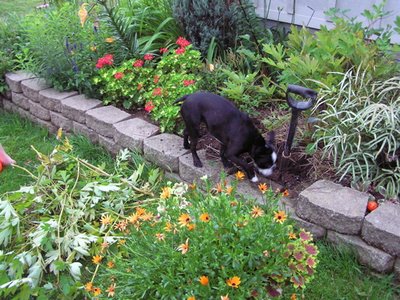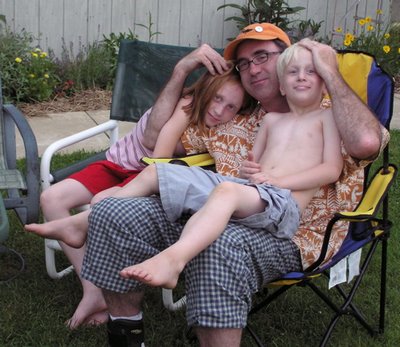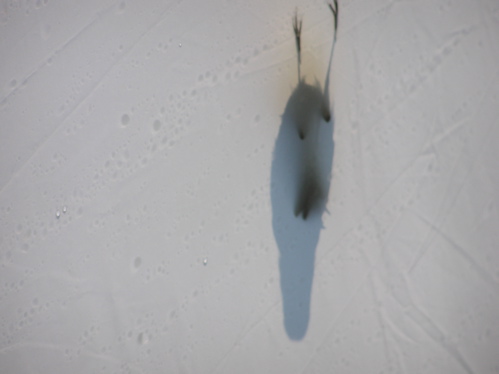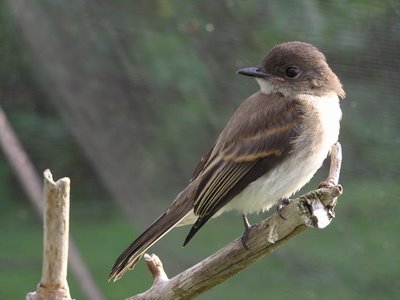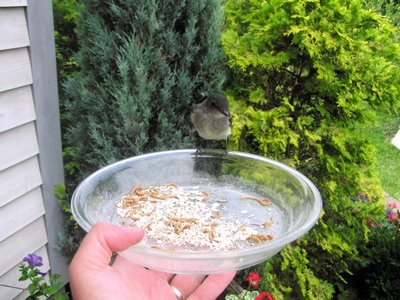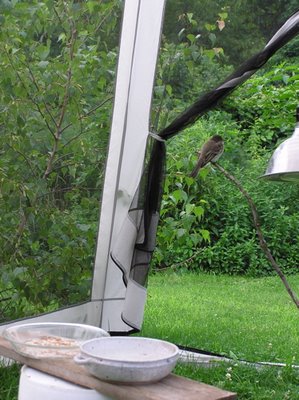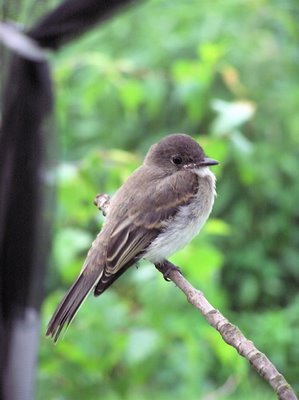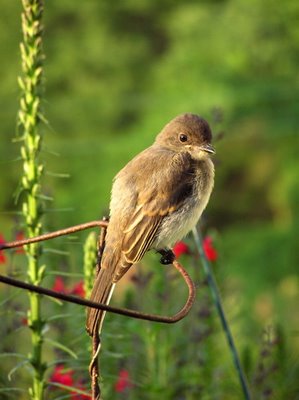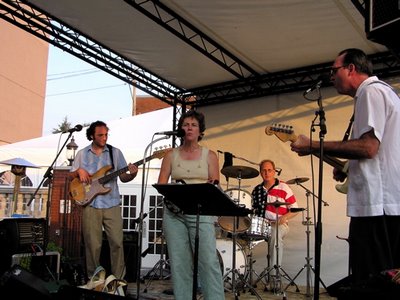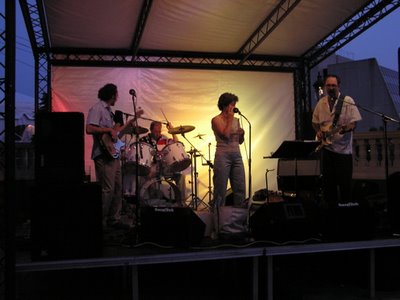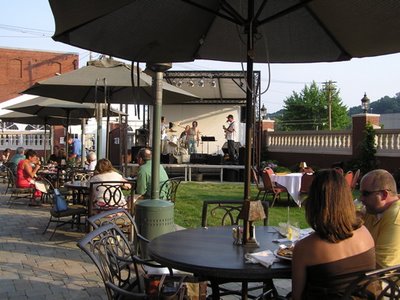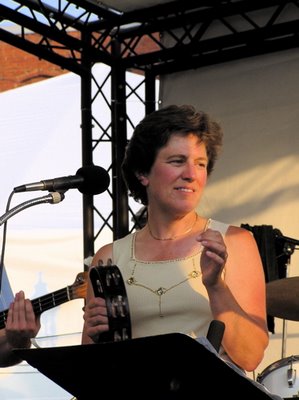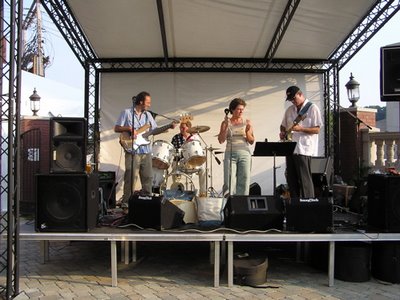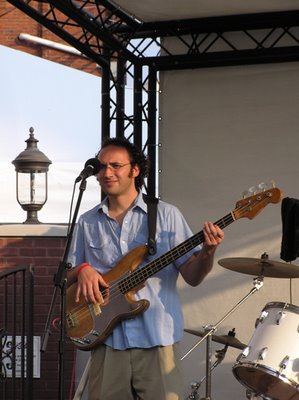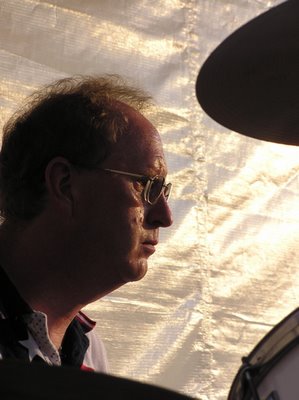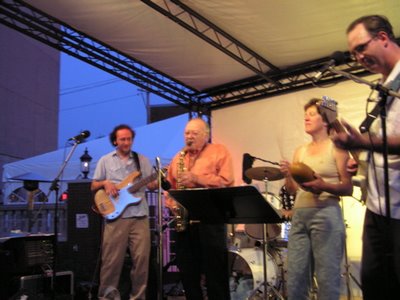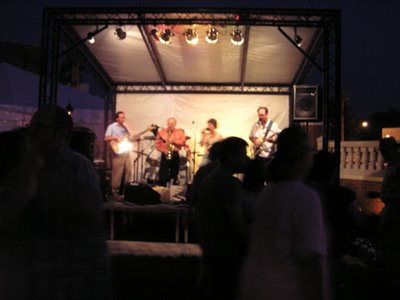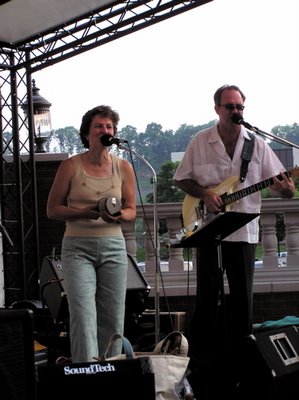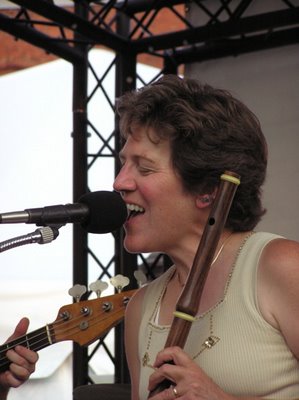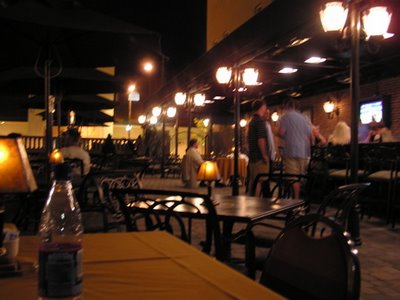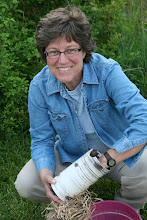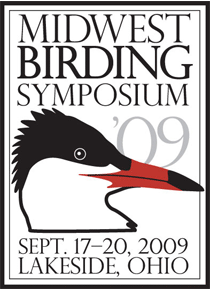It's been a weird year for bluebirds. On one hand, production is up. On the other, I've had four boxes in which some or all of the babies have died mysteriously, some with heads hanging out of the boxes. I'm zeroing in on the cause. All have been in boxes that were along fencelines, well-kept. Which usually means herbicides have been sprayed along them at one time or another. This is a thorny problem. The best bluebird habitat is on the well-kept farms and fields. I'm stuck with mounting boxes along fencelines, because the cattle will knock them down if they're in the pasture, or I'll interfere with haying. And bluebirds hunt along fencelines, no matter where the boxes are mounted. What seems to be the best course is working more closely with the farmers to ensure that no spraying happens while birds are nesting, and I'm doing that now. The township, which also sprays herbicides along the roadsides where my boxes stand, is another issue, one that will be harder to address. Wouldn't want any chicory or butterflyweed blooming around those guardrails!
Reading that I've done indicates that seemingly inocuous herbicides like the widely touted "safe" Roundup, when ingested, can interfere with thermoregulation in baby bluebirds. The young ones die of exposure or heat exhaustion, which helps explain the heads hanging out of the box hole, perhaps.
One such box, which has since been relocated, lost its first brood this way. When I checked the second brood, the box had three long-dead nestlings and two just barely clinging to life atop their bodies. I could tell as I walked up to the box that there was trouble inside. Flies buzzed around the hole. Sure enough, I had a nauseating mess to clean up. And it was pouring rain, and I didn't have a blade of dry grass with me to make a new nest once I'd cleaned the noisome goo out from under the two surviving young. I swabbed them off with Kleenex as best I could, cleaning crud from their feathers, bills and eyes. One couldn't hold its eyes open; the other looked slightly better. In desperation, I wiped out the box, and made a thick platform of clean tissues for a makeshift nest. I said sadly to the kids as I got back in the car, "They'll die. I know they're dying. But I need to give them one last chance. Maybe the parents can feed them out of this, now that the dead babies are out of there and the nest is clean." I considered bringing them home, and discarded the idea just as quickly. I was pretty sure the parents were still in attendance. At that time, I was struggling to keep Avis alive, and the last thing my heart needed was two more orphans, and sick ones at that.
Exactly a week later, I pulled up with Phoebe and Liam to the box. Heavy-hearted, I trudged up to it, took it down, holding my breath all the while, and looked inside. Here's what I found:
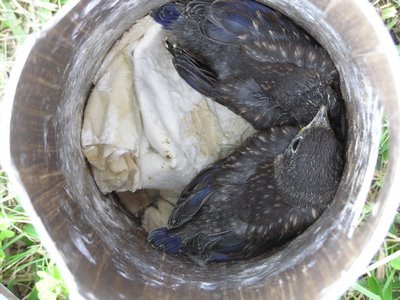
Seventeen days old, a little behind, but very much alive and healthy. Hallelujah!
Tonight, I am very lonely. Phoebe's at the beach with her grandmother and cousin; Bill's somewhere on the Dark Continent. It's just me, Liam, Chet and Charlie. I work and work; I've got piles of drawings to do before fall. Do I feel like drawing? Nope. I feel like watching birds in Africa with Bill. The house is a mess again; there's that to do, too. Lawn's getting long; it just keeps raining. Drawing is the only thing that keeps me from falling into a real funk. That, and the continuous chatter and rain of wonderful drawings from Liam. He's doing his level, six-year-old best to keep Mom smiling. He took off his sneakers, smelled his foot, and gave this synopsis:
"My socks smell like seashells mixed with rotten bananas and rotten pears." Oh. Thanks for sharing, honey.
Here's a poem that hit me like a ton of bricks this morning. It was in the Writer's Almanac:
Poem: "Sunday Morning, Late August" by Deborah Cummins from Beyond the Reach. © BkMk Press. Reprinted with permission.
Sunday Morning, Late August
She's never sat at a steamy café near Pont Neuf
and fed a lover a perfect tarte tatin,
never slept naked in a rented room
on Place de la Madeleine, shutters open to the rain.
Already, a thousand times before this morning,
she's wished to be someplace else if only
a little further down the beach.
In this small town on the Cape, even clouds
drag away their important business.
Flimsy chairs face seaward, as if in wait
for something glorious, drastic.
An ocean away from Boulevard St. Germain,
the water shimmers like unspooled foil.
Some other life lies elsewhere:
hers, unclaimed.
But why, now, as her husband crosses the yard
and with customary gestures plucks—
oh, how banal—a common daisy,
does her blood, running its old familiar route,
deliver such bounty to her heart?
There's so much encoded in this poem. To me, it speaks to a wife's unspoken but burning need for acknowledgement, however simple. You can forget Paris; even Africa, though I'd love to be there right now. What I need tonight is a daisy.

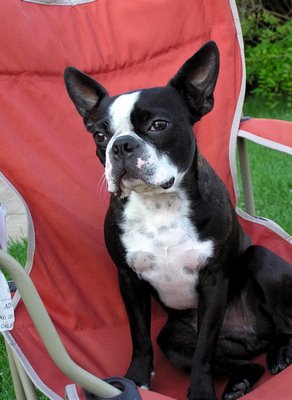 When we pull out the lawn chairs, we always put up an extra one for Chet, who enjoys being part of the dinner table conversation. He listens attentively and hopes that someone hands him part of their dinner, but he is never pushy about it. He looks particularly hopeful here.
When we pull out the lawn chairs, we always put up an extra one for Chet, who enjoys being part of the dinner table conversation. He listens attentively and hopes that someone hands him part of their dinner, but he is never pushy about it. He looks particularly hopeful here.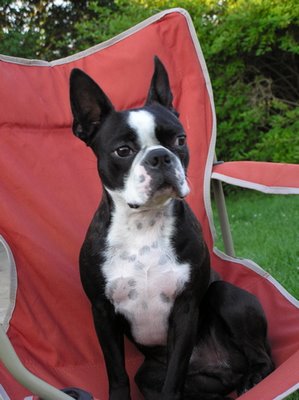 Oops! Did I just....umm....did anyone hear something?
Oops! Did I just....umm....did anyone hear something? I am terribly sorry. It is the dried chicken breast strips from Trader Joe's that do it every time. I wish I did not love them so much.
I am terribly sorry. It is the dried chicken breast strips from Trader Joe's that do it every time. I wish I did not love them so much. You are hurting my feelings now. It is not that funny.
You are hurting my feelings now. It is not that funny.
